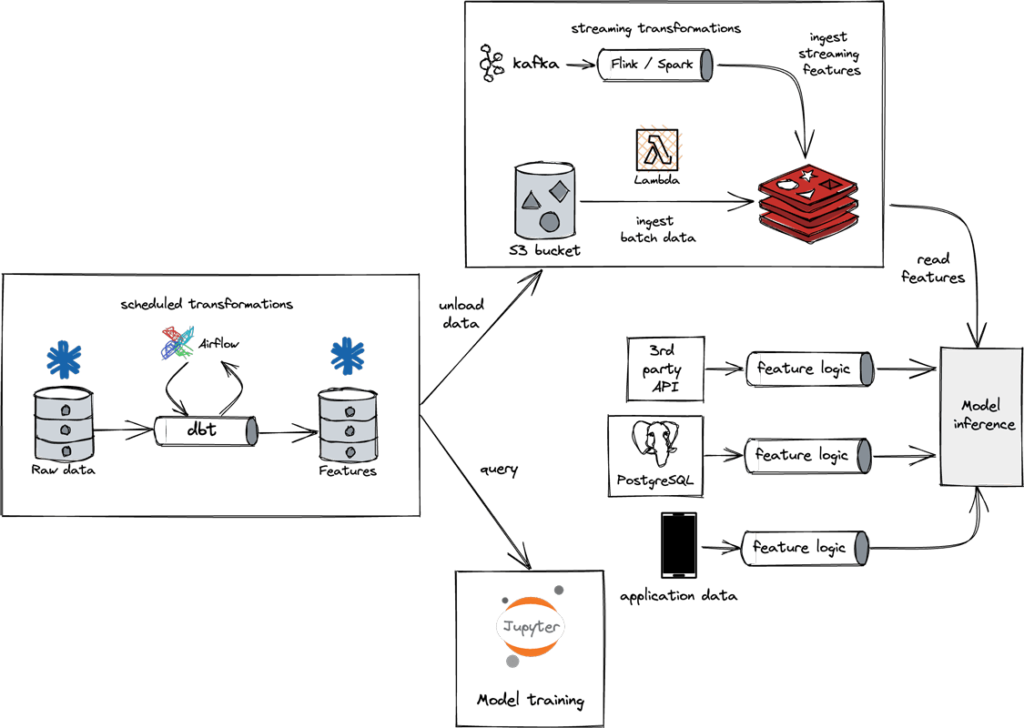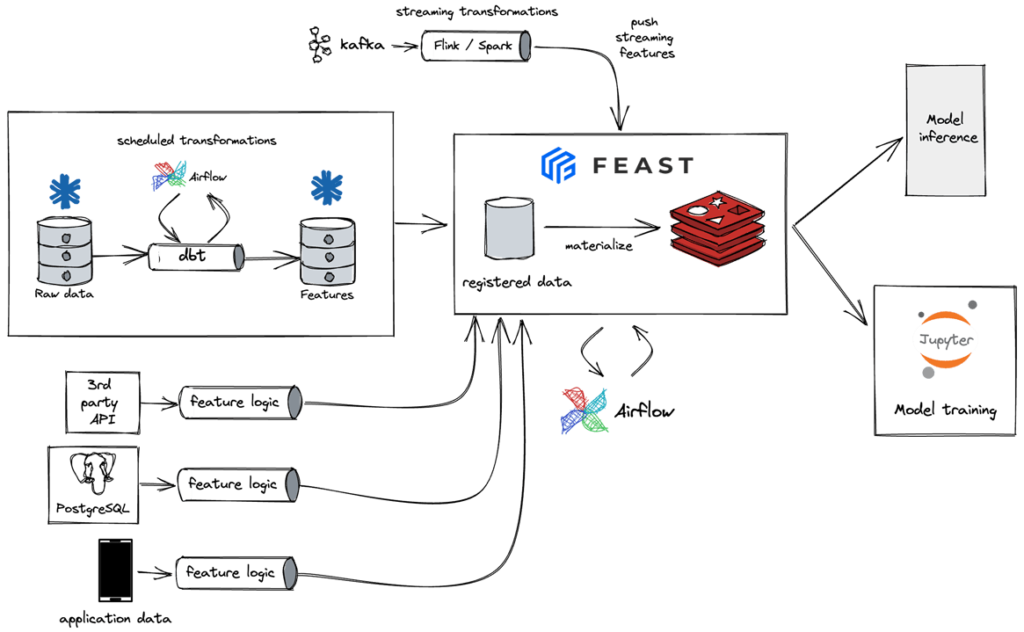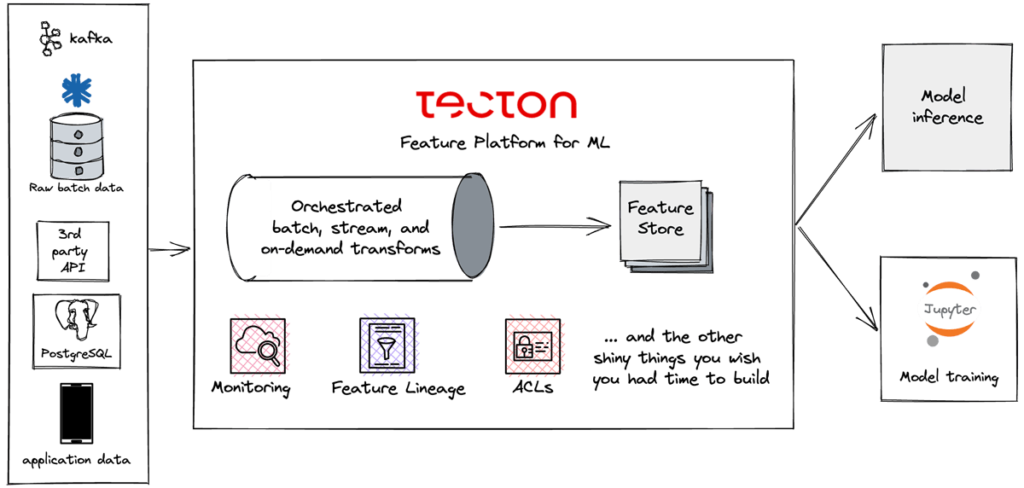Feature Store vs. Feature Platform

Have you ever wondered what the difference is between a feature store and a feature platform? At first glance, they look like they provide similar capabilities and many teams may choose to go the direction of using an open-source feature store like Feast to build their real-time machine learning applications.
But building production real-time machine learning applications is an infrastructure-heavy problem. As we detailed in our other blog post, “Real-Time Machine Learning Challenges,” when you first approach the problem, building a happy path (where nothing unexpected happens) solution may seem easy. However, there are a lot of edge cases and problems that you’ll run into as you build out your ML platform or use cases.
In this post, we’ll dive into the steps many companies take on journey to machine learning adoption and why many ultimately choose to buy a feature store or feature platform instead of building one in-house.
Step 1: Building home-grown, team-specific infrastructure for machine learning
Companies early in their machine learning adoption journey often rely on use case teams to build their own team-specific infrastructure. However, getting to production can take so long that stakeholders get impatient, projects / teams churn, and models fail to move the needle on business value. A typical architecture may look something like this:

Each of these components is hard to maintain and keep consistent, and there’s plenty of room for training / serving skew. Iterating on a model means adding new logic in all of these components.
Step 2: Staffing a machine learning platform team
At this point, the company often realizes that it needs a dedicated ML platform team to build out infrastructure to empower its use case teams to succeed. If they don’t, each use case team ends up building something similar, but not quite the same, as the above diagram on their own.
Step 3: Consider decoupling data from machine learning with a feature store
The company may then introduce a feature store (such as Feast) as a means for standardizing data access and making feature values consistently available online / offline:

This diagram looks a lot cleaner! It’s now easier to ensure that feature values are consistently made available for model training and serving. There are no longer disorganized pipelines that move data into a low latency online store.
However, for many companies, a feature store doesn’t solve the core problems the company is facing, which we’ve highlighted before in previous posts: reliably building and maintaining feature pipelines.
Step 4: Build (or buy) a feature platform for machine learning
The machine learning platform team then has to invest in making a reliable-by-default feature platform.
As mentioned, a feature store doesn’t solve the challenge of reliably transforming features. It also doesn’t necessarily orchestrate pipelines (e.g., scheduling batch transformations, maintaining streaming pipelines, scheduling materialization of feature values from offline data sources to online). A feature platform (which includes a feature store) is the final form of this architecture:

With a feature platform, use case teams don’t need to think about all those messy arrows in that first diagram to get models to production. All the challenges we detailed in this post still exist, of course, but are handled by the feature platform.
For example, Tecton’s feature platform removes the need to think about writing and maintaining complex feature pipelines while giving production-grade SLAs on feature availability, freshness, and serving latency.
In practice, building a reliable feature platform is much easier said than done. Many machine learning platform teams have a large wishlist of things to build, but spend most of their time putting out fires or keeping the lights on and not enough time on building what they want or need.
Key takeaways and recap
Both feature stores and feature platforms help solve key issues that come up in this journey.
Feature stores like Feast help with making features consistently available offline and online. They provide an abstraction to standardize data pipelines that power ML models.
Feature platforms like Tecton provide end-to-end solutions to also define, maintain, and orchestrate feature pipelines. Tecton also provides real-time feature pipelines, low latency serving, and uptime and latency SLAs, along with continuous monitoring and alerting.
Interested in learning more? Watch this webinar, “Choosing the Right Feature Store: Feast or Tecton,” where we take a deep dive into how Tecton and Feast can help with solving common machine learning problems and when to choose one vs. the other.

